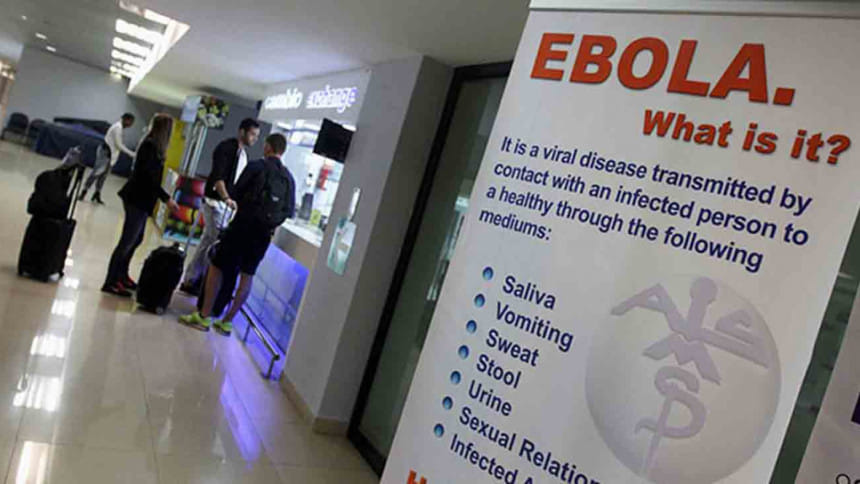Ebola drug cures infected moneys

An experimental drug has cured monkeys infected with the Ebola virus, US-based scientists have said.
The treatment, known as TKM-Ebola-Guinea, targets the Makona strain of the virus, which caused the current deadly outbreak in West Africa.
All three monkeys receiving the treatment were healthy when the trial ended after 28 days; three untreated monkeys died within nine days.
Scientists cautioned that the drug's efficacy has not been proven in humans.
At present, there are no treatments or vaccines for Ebola that have been proven to work in humans.
University of Texas scientist Thomas Geisbert, who was the senior author of the study published in the journal Nature, said: "This is the first study to show post-exposure protection... against the new Makona outbreak strain of Ebola-Zaire virus."
Results from human trials with the drug are expected in the second half of this year.
GENE BLOCKING
Geisbert said the drug, produced by Tekmira Pharmaceuticals, could be adapted to target any strain of Ebola and could be manufactured in as little as eight weeks.
It works by blocking particular genes, which stops the virus replicating.
The two-month production time compares with the several months needed to make ZMapp - another experimental drug, which cured monkeys with a different strain of Ebola than the one in the current outbreak.
Since March 2014, more than 10,602 people have been reported as having died from the disease in six countries - Liberia, Guinea, Sierra Leone, Nigeria, the US and Mali.
The total number of reported cases is more than 25,556.
It has been the deadliest occurrence of Ebola since its discovery in 1976.

 For all latest news, follow The Daily Star's Google News channel.
For all latest news, follow The Daily Star's Google News channel. 



Comments